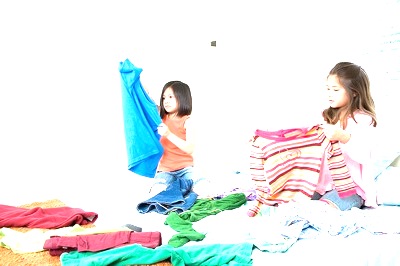We reached out to the amazing pediatrics team at Carson Medical Group Carson Tahoe Health to help us identify at what age we should be teaching our children basic life and motor skills. If you and your child are at home enjoying the holiday break, consider trying a few!
First things first, it’s important to remember that children develop at different speeds, and that’s ok. These are recommendations about what generally works best for each child. If you have any questions about your children’s developmental skills, you should consult your pediatrician!
Ages 2-3
This is the average age when kids begin to learn basic skills, they mainly include grooming and some help with chores. Here’s what you can begin working on together:
- Helping put toys away
- Assist in dressing themselves
- Putting dirty clothes in a hamper or laundry pile
- Brushing teeth and washing hands (with assistance)
- Helping set a table
Ages 4-5
At this age, safety skills are important to know as this may be the first time when they are independent at schools or left alone to play at birthday parties or a friend’s house. You can help then learn to:
- Know full name, address and telephone number
- How to dial 911 in an emergency
- How to feed pets
- How to brush teeth and hair without assistance
- Choose what to wear
Ages 6-7
Kids at this age can start to help cook meals and should also start to learn to:
- Help put groceries away
- Use basic household cleaners sagely
- Make their bed
- Take a shower or bath independently
Ages 8-9
At this age, kids enjoy being given responsibilities and tasks. You can help them learn this by teaching them how to:
- Fold their laundry
- Take care of valuable items like their bike or sports equipment
- Help find items in a grocery story
- Take a written phone message
- Text message
- Take out the trash
- Help with basic household duties like weeding, raking leaves or watering plants
- Follow basic instructions like building a basic model airplane or following a recipe
Ages 10-13
Once children reach 10 and up, it’s important to teach them how to be independent in a responsible way, this includes:
- Staying home alone (for shorter periods and then progressing to longer periods)
- Using the washing machine and dryer
- Read labels on food and medicine
- Look after younger siblings or children
Ages 14-18
And, now you have a full-blown teenager! This is a great time to help them be confident in mastering the following:
- Fill a car with gas, add air to and change a tire
- Read and understand what medicine dosages mean
- Interview and get a job
- Perform more complicated cleaning tasks like vacuuming, cleaning the oven and unclogging drains
We hope these have given you an easy point of reference into raising some stellar humans.
Here’s to parenting!







